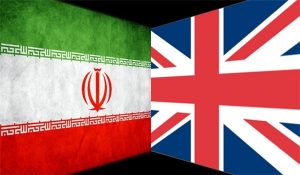“Churchillian” Foreign Policy Since 1945: Imperial Establishment’s Ideological Adjustments to Managing British Power, and Interests in Post Colonial Britain.
The First World War, however, strengthened the nationalism of the white Dominions and India. The intensification of nationalism in the white Dominions following the 1914-18 War led eventually to the Statute of Westminster. As a result of the Statute of Westminster in 1931, the full nationhood of the white Dominions was made official and the British Commonwealth was set up, as they decided to maintain their ties with Britain. As India observed the white Dominions being given full nationhood, she too followed their path at a speed that no British political elite had contemplated.
Moreover, apart from the economic and technological development that had taken place in the nineteenth and the twentieth century in the white Dominions, which were already posing economic and political challenges from within the Empire to Britain, there were almost at the same period, increasing competition both economically and politically from Germany, Japan, Russia and the United States. However, the crucial challenge was made by the United States. As the United States’ industry continued to expand faster and faster in the inter-War period, and therefore she sought markets beyond her shores, America inevitably came into conflict with the Empire’s economy, which was, as has been said, under threat from inside already.
Consequently, as a result of the pre-World War Two pressures, the growth of foreign political and economic challenges, especially the USA, the developments that had already taken place in the Empire nations such as the granting of full nationhood to the white Dominions, due to their own economic and political advancements, and with India already pressing for independence, Britain was in a less advantageous position to fight another World War. After the 1939-45 War, in spite of the defeat of the enemy once more, the United Kingdom had lost a quarter of what had remained of her wealth after the First World War, moreover, heavy destruction had been inflicted on Britain, thus a massive programme of War reconstruction was urgently needed. Additionally, as after 1941 the United States and the Soviet Union bore an increasing share of the War effort, they emerged as two new super-powers, with the US possessing the atomic weapon. Although Britain had the technology to develop such a weapon, given all her economic pressures the cost of competing with nuclear weapons to the degree that the new super-powers had the resources for, was not something that she could afford. The British political elite were faced with a number of factors: first and foremost the Americans did not approve of colonialism. They believed that they had fought a war for democracy and liberty and saw no reason for continuation of colonialism which they too had been victims of and rejected two hundred years or so earlier. There was also the socialist inspired propaganda coming from the Soviet Union pointing at the exploitation and repression of the colonial system. Thus the British political elite had to seek solutions to safeguard British interests. Not being able to provide an effective defence for the Empire in the face of the world which emerged after 1945, British interests could easily become subordinated to the Soviet Union and/or the United States. To safeguard and protect the huge and well established prestige, way of life, culture, strategic basis, trade investments, and diplomatic influence on which Britain’s world role had mainly rested, the British political elite adopted an approach based on a diffused system of control.



